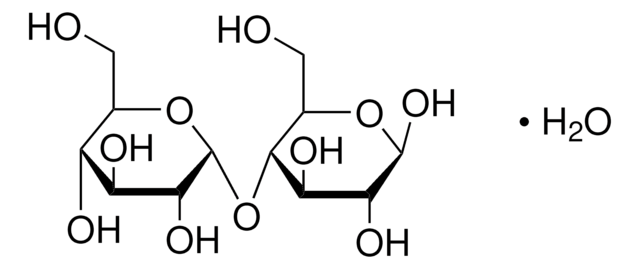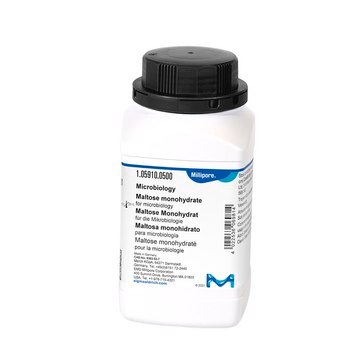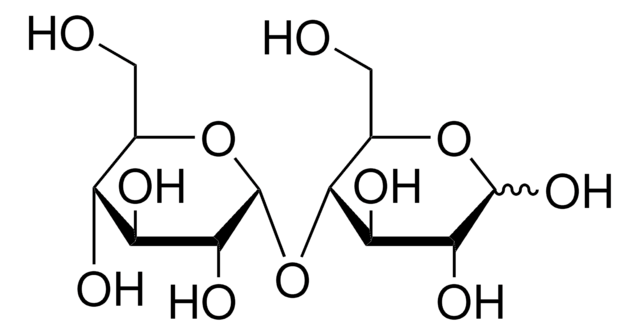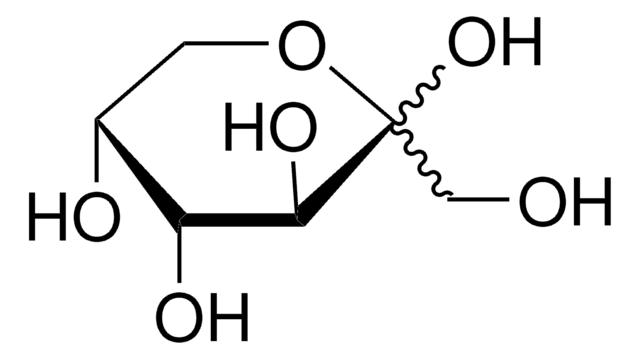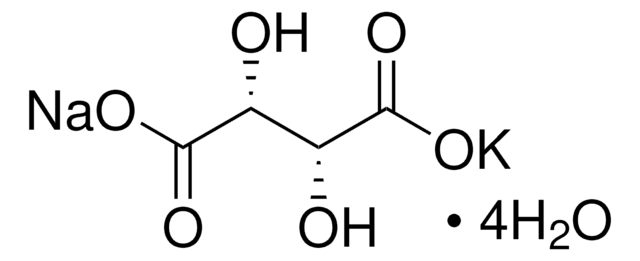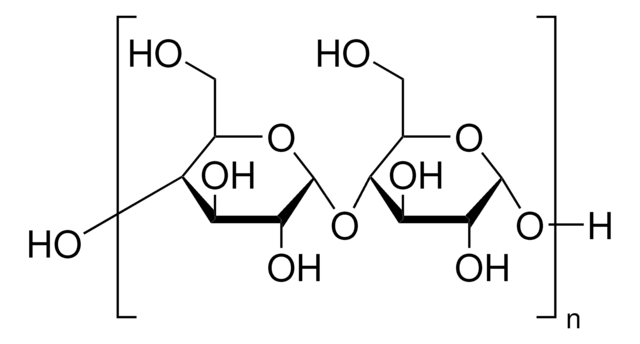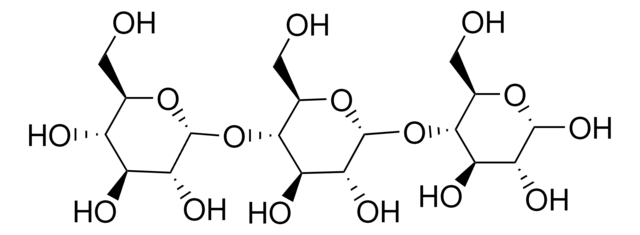M9171
D-(+)-Maltose monohydrate
≥99% (HPLC), BioXtra
Synonym(s):
4-O-α-D-Glucopyranosyl-D-glucose, Maltobiose
About This Item
Recommended Products
biological source
potato (tuber)
Quality Level
product line
BioXtra
assay
≥99% (HPLC)
form
powder
technique(s)
HPLC: suitable
impurities
≤0.0005% Phosphorus (P)
≤0.1% Insoluble matter
≤0.3% glucose
≤1.0% maltotriose
ign. residue
≤0.1%
color
white
useful pH range
5.0-7 (25 °C, 180 g/L)
mp
125.13 °C (1013.25 hPa)
solubility
H2O: 1 M, clear, colorless
anion traces
chloride (Cl-): ≤0.003%
sulfate (SO42-): ≤0.005%
cation traces
Al: ≤0.0005%
Ca: ≤0.0005%
Cu: ≤0.0005%
Fe: ≤0.0005%
K: ≤0.005%
Mg: ≤0.0005%
NH4+: ≤0.05%
Na: ≤0.005%
Pb: ≤0.001%
Zn: ≤0.0005%
SMILES string
O.OC[C@@H](O)[C@@H](O[C@H]1O[C@H](CO)[C@@H](O)[C@H](O)[C@H]1O)[C@H](O)[C@@H](O)C=O
InChI
1S/C12H22O11.H2O/c13-1-4(16)7(18)11(5(17)2-14)23-12-10(21)9(20)8(19)6(3-15)22-12;/h1,4-12,14-21H,2-3H2;1H2/t4-,5+,6+,7+,8+,9-,10+,11+,12+;/m0./s1
InChI key
HBDJFVFTHLOSDW-DNDLZOGFSA-N
Looking for similar products? Visit Product Comparison Guide
Application
- as a substrate for the detection of carbohydrase activity
- as a carbohydrate supplement in yeast nitrogen base (YNB) medium for culturing the fungus Leucoagaricus gongylophorus
- as substrate maltase enzyme activity of Leucoagaricus gongylophorus and to determine Michaellis-Menten constant (Km)
as a reference standard to investigate the mass spectra using gas chromatography-time of flight mass spectroscopy (GC-TOFMS)
Biochem/physiol Actions
Other Notes
Storage Class
13 - Non Combustible Solids
wgk_germany
WGK 1
ppe
Eyeshields, Gloves, type N95 (US)
Choose from one of the most recent versions:
Certificates of Analysis (COA)
Sorry, we don't have COAs for this product available online at this time.
If you need assistance, please contact Customer Support.
Already Own This Product?
Find documentation for the products that you have recently purchased in the Document Library.
Customers Also Viewed
Chromatograms
application for HPLCOur team of scientists has experience in all areas of research including Life Science, Material Science, Chemical Synthesis, Chromatography, Analytical and many others.
Contact Technical Service